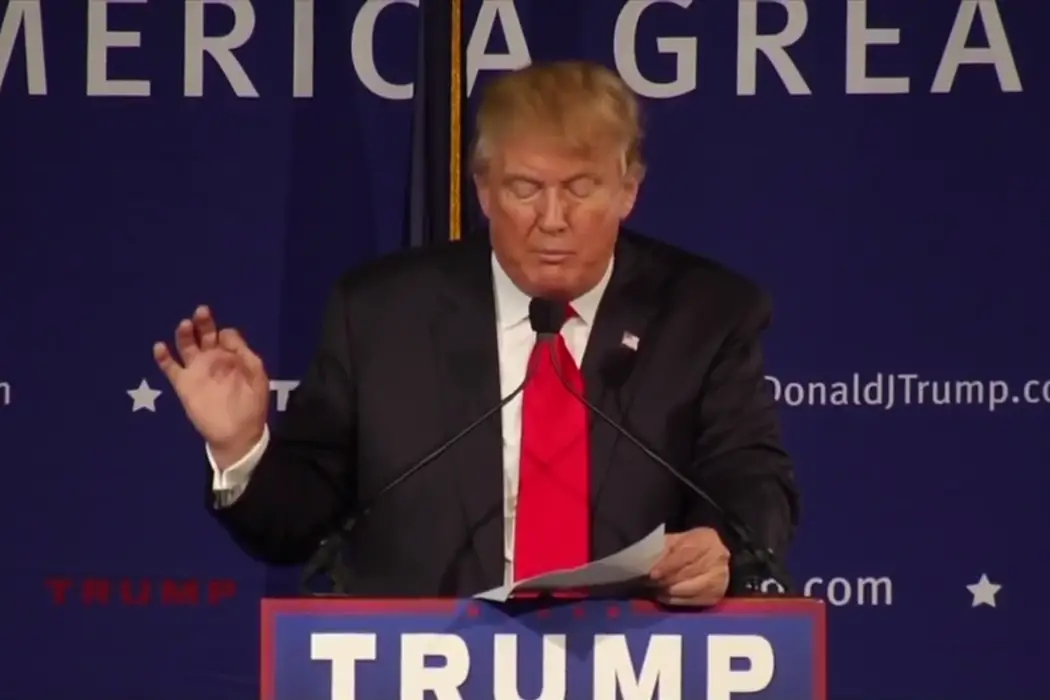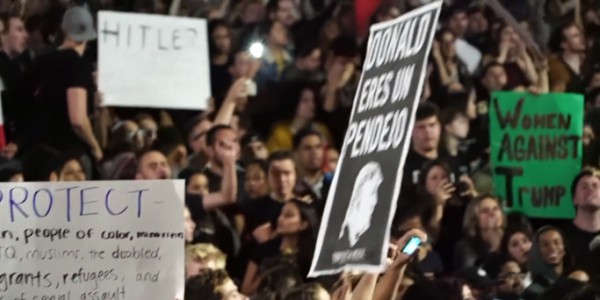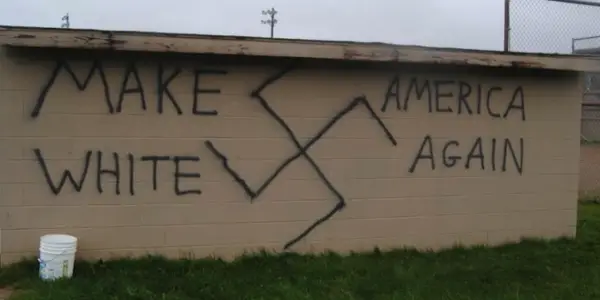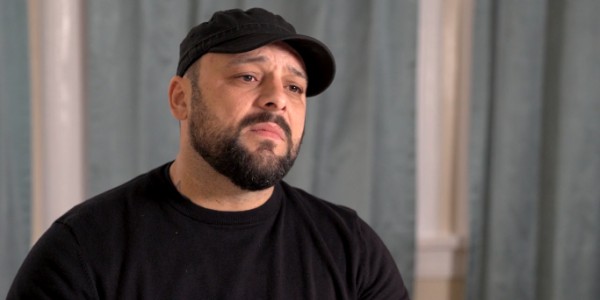THE POLITICS OF HATE: A Flawed Portrait Of Our Troubled Times

It took me a while to discover the wonderful world…
Just two years ago, both Brexit and a Donald Trump presidency seemed impossible. The thought of either coming to pass was just too much to countenance; that we would soon be living in a universe where the UK voted for Brexit and Donald Trump was leader of the free world was laughable.
And yet, here we are, and both impossible things happened. You don’t need me to tell you that it’s been a tumultuous time. The divide amongst conservatives and liberals across the west has rarely seemed so acute, leaving room for far-right extremists to claw their way into the public conversation. And the devastating events at Charlottesville threw the cost of emboldening fascists into sharp relief.

The Politics of Hate delves into our troubled new era, demonstrating that actually, there’s nothing new about it…
Far-Reaching
The Politics of Hate is described as ‘a far-reaching investigation into the rise of the far-right in Europe and America’. And as a viewer, you’d be hard pushed to deny that the documentary is indeed far-reaching.
Aside from a lengthy section spent on World War II and the civil rights movement, we’re taken through what feels like every major political event to occur in the Western world over the last eighteen months. The documentary covers various aspects of the Trump presidency (his hostility toward Muslims, women, and the press; the stirring of violence at his rallies; the Russia investigation; the protests against him); the rising far-right tide across Europe, exemplified by Marine Le Pen, Nigel Farage and Geert Wilders; atrocities committed by fascists and neo-Nazis like Anders Breivik, Dylann Roof and Timothy McVeigh; and Charlottesville. All of that in sixty-eight minutes!
As you might expect from a documentary that tries to cover so much in such a short amount of time, The Politics of Hate is often overwhelmed by its material. There’s only room to satisfactorily cover a certain amount in a little over an hour, and by including news that is only tangential to his thesis (such as the Russia investigation, and Trump’s misogyny), writer-director Michael Perlman dilutes the impact of his film.

That being said, the fact that there is so much here to indicate that the world is in a precariously similar place in 2018 as it was in 1938 is a powerful thought. Because Perlman has all that evidence at his fingertips, he is able to lay out his information in a comprehensive, convincing manner. He makes the case that the far-right have always been present in the upper echelons of American life, touting the influence of openly fascist men such as Henry Ford and Charles Lindbergh, and that America was far from faultless during the horrors of World War II.
The most powerful country in the world has often been perilously close to descending into hate-fuelled chaos. That, Perlman suggests, is what makes a president like Trump so very dangerous. Now if you’ve been doing even the most cursory of reading, this angle will not be new to you. Countless journalists, academics, comedians, and authors have drawn comparisons between Trump and various dictators. There isn’t anything in The Politics of Hate that is likely to surprise an attentive consumer of the news, but the presentation of its argument is impressive nonetheless.
Limitations
It’s clear that Michael Perlman is not working with a big budget here. The Politics of Hate wasn’t made with a cinema distribution in mind, but as an educational tool for the ‘socially conscious’ production company World2Be, of which Perlman is the founder. Overall it plays more like a heavily illustrated lecture than a traditionally cinematic documentary in the vein of Errol Morris or Michael Moore.
There are only three participants in The Politics of Hate. Christian Picciolini, ex-Nazi and now head of Life After Hate; Mark Potok of the Southern Poverty Law Center; and Mehnaz Afridi, director of the Holocaust, Genocide & Interfaith Education Center at Manhattan College. All three are clear, engaging speakers, but it is Picciolini who really sticks out. His first-hand knowledge of these far-right groups, and the story of his transition from Nazi to anti-Nazi, makes him the strongest weapon in the film’s arsenal. It’s a shame that his personal story is rushed through in order to focus on less pertinent issues.

The worst aspect of The Politics of Hate, and the one that the limited budget would have had no bearing on, is a lack of attention to detail. A quick google whilst researching this review revealed that, rather shockingly, one of the three speakers is credited with a misspelled name; it’s Mehnaz Afridi not Menhaz Afridi. Amusingly, but no less sloppily, ex-UKIP leader Nigel Farage is referred to as Nigel Frange. It’s inexcusable to overlook such basic, important details.
Another mistake seems more intentional. Asked by CNN’s Jake Tapper whether he planned to disavow the support he recieved from former KKK Grand Wizard David Duke, then-candidate Trump responded, ‘Well, just so you understand, I don’t know anything about David Duke, okay?’. In The Politics of Hate, that response is edited down to just ‘I don’t know.’
Whilst Trump falsely denying that he knows anything about Duke is still reprehensible, the editing makes it seem that he is explicitly saying he’s not sure whether to accept the support of a racist. As, a year into his presidency, we are all aware, Donald Trump says enough contemptible things on a daily basis that there is no need to so wilfully misconstrue his words. The misleading editing here is unnecessary, and just plays into his constant refrain about the media being against him. It helps no one but Trump.
In Conclusion: The Politics of Hate
Whilst there is a lot to commend about The Politics of Hate, such as the breadth of its research and the engaging speakers (primarily Christian Picciolini, who really merited more screen time), for the contemporaneous viewer, there isn’t much point in watching it. Setting aside the mistakes and the misleading editing, if anything this documentary is too timely; it is more an amalgam of all the think-pieces and news reports of the last eighteen months than a presentation of new information.
If you’ve paid the slightest bit of attention to the news since 2016, you won’t find anything revelatory about The Politics of Hate. Perhaps, though, it will prove a useful tool for history teachers, a few decades down the line.
Have you seen The Politics of Hate? What did you think?
The Politics of Hate is out now on Amazon Prime Video.
Does content like this matter to you?
Become a Member and support film journalism. Unlock access to all of Film Inquiry`s great articles. Join a community of like-minded readers who are passionate about cinema - get access to our private members Network, give back to independent filmmakers, and more.
It took me a while to discover the wonderful world of cinema, but once I did, everything just fell into place.













